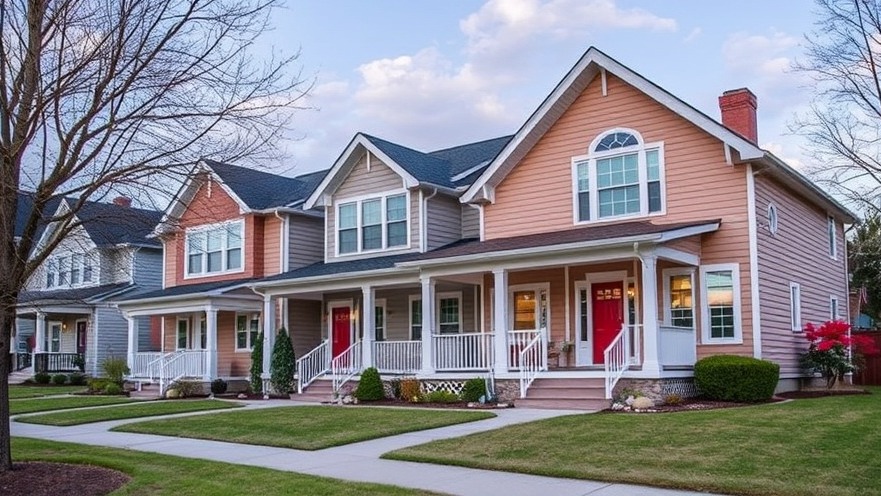
Seattle's Housing Market Struggles: The Affordability Dilemma
Despite a vibrant city landscape and increasing inventory, Seattle's housing market remains plagued by significant affordability challenges. As highlighted by economist Jeff Tucker of Windermere Real Estate, the Seattle housing market is one of the most expensive in the nation, trailing only a few coastal California cities. Currently, the median home price has skyrocketed to $910,000—a steep increase from $649,999 at the onset of the COVID-19 pandemic in March 2020.
Understanding Price and Income Disparities
While Seattle boasts a relatively high median income of $110,744, this figure fails to provide the relief one might expect in terms of housing affordability. The city's price-to-income ratio stands at a staggering 7.4, placing it among the most challenging markets to penetrate for first-time homebuyers. Comparatively, this ratio exceeds those of historically expensive markets like New York and Boston, raising questions about the sustainability of such a real estate climate.
The Role of Legislation and Land Use
The lack of available land for new construction poses a serious hurdle to alleviating housing shortages in Seattle. In response to these issues, Washington state enacted legislation in 2023 allowing for accessory dwelling units (ADUs), duplexes, and fourplexes throughout the state. While this initiative aims to enhance housing density, its effectiveness may be limited; many property owners are hesitant to invest in such developments without guaranteed increases in home value. Redfin agent David Palmer notes a growing interest among buyers in multigenerational homes, suggesting that the need for flexible housing solutions is becoming increasingly paramount.
Economic Factors Influencing the Market
The recent $9 billion tax hike approved by the state government is likely to exacerbate affordability struggles. While designed to fund essential services, these additional taxes impact buyers and sellers alike, potentially curbing market activity further. Thus, any positive effects of legislative changes regarding upzoning may be overshadowed by the economic realities buyers face.
Looking Ahead: Is There Hope for Buyers?
As the Seattle housing market continues to grapple with these persistent issues, potential buyers and real estate professionals alike face a challenging landscape. Awareness of these factors is critical for adapting strategies to facilitate transactions in this complex market. Keeping abreast of changes in legislation and market conditions can equip buyers and agents with the knowledge necessary to navigate this tumultuous terrain effectively.
Ultimately, the path towards increased affordability in Seattle's housing market demands cooperation from policymakers, builders, and potential homeowners. With understanding and legislative support, it may be possible to create a more accessible housing environment that meets the diverse needs of the community. As the situation develops, those entrenched in the real estate realm must remain vigilant, adapting their approaches to the evolving marketplace.
 Add Row
Add Row  Add
Add 




 Add Row
Add Row  Add
Add 

Write A Comment